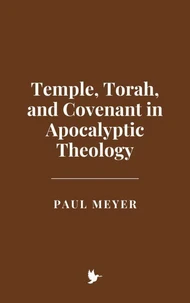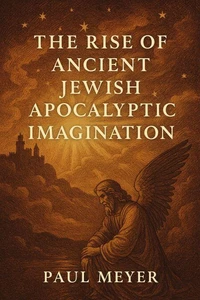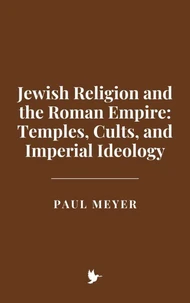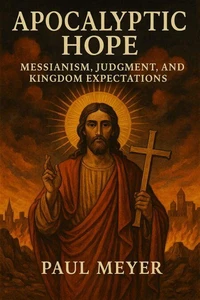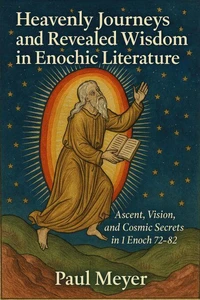The Mythical Language and the Jewish Apocalyptic Literature
Par :Formats :
Disponible dans votre compte client Decitre ou Furet du Nord dès validation de votre commande. Le format ePub est :
- Compatible avec une lecture sur My Vivlio (smartphone, tablette, ordinateur)
- Compatible avec une lecture sur liseuses Vivlio
- Pour les liseuses autres que Vivlio, vous devez utiliser le logiciel Adobe Digital Edition. Non compatible avec la lecture sur les liseuses Kindle, Remarkable et Sony
 , qui est-ce ?
, qui est-ce ?Notre partenaire de plateforme de lecture numérique où vous retrouverez l'ensemble de vos ebooks gratuitement
Pour en savoir plus sur nos ebooks, consultez notre aide en ligne ici
- FormatePub
- ISBN8230072454
- EAN9798230072454
- Date de parution04/02/2025
- Protection num.pas de protection
- Infos supplémentairesepub
- ÉditeurIndependently Published
Résumé
This book explores the evolution of Jewish apocalypticism, from its early roots in the Second Temple period through its influence on later religious traditions and modern thought. Jewish apocalyptic literature emerged as a response to the historical crises and political oppression faced by the Jewish people, offering visions of divine intervention, ultimate judgment, and the restoration of divine order.
Beginning with the Book of Daniel and 1 Enoch, this study traces the development of key apocalyptic themes, including messianic expectations, resurrection, cosmic conflict, and the role of angels in executing divine justice. The influence of Hellenistic and Roman empires on Jewish apocalypticism is examined, as well as how these themes were reinterpreted in the context of Roman domination, particularly following the destruction of the Second Temple.
Beginning with the Book of Daniel and 1 Enoch, this study traces the development of key apocalyptic themes, including messianic expectations, resurrection, cosmic conflict, and the role of angels in executing divine justice. The influence of Hellenistic and Roman empires on Jewish apocalypticism is examined, as well as how these themes were reinterpreted in the context of Roman domination, particularly following the destruction of the Second Temple.
This book explores the evolution of Jewish apocalypticism, from its early roots in the Second Temple period through its influence on later religious traditions and modern thought. Jewish apocalyptic literature emerged as a response to the historical crises and political oppression faced by the Jewish people, offering visions of divine intervention, ultimate judgment, and the restoration of divine order.
Beginning with the Book of Daniel and 1 Enoch, this study traces the development of key apocalyptic themes, including messianic expectations, resurrection, cosmic conflict, and the role of angels in executing divine justice. The influence of Hellenistic and Roman empires on Jewish apocalypticism is examined, as well as how these themes were reinterpreted in the context of Roman domination, particularly following the destruction of the Second Temple.
Beginning with the Book of Daniel and 1 Enoch, this study traces the development of key apocalyptic themes, including messianic expectations, resurrection, cosmic conflict, and the role of angels in executing divine justice. The influence of Hellenistic and Roman empires on Jewish apocalypticism is examined, as well as how these themes were reinterpreted in the context of Roman domination, particularly following the destruction of the Second Temple.




